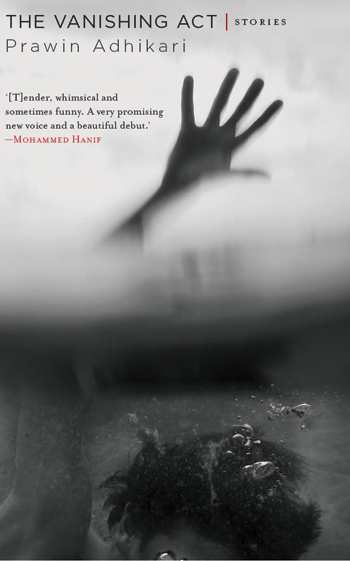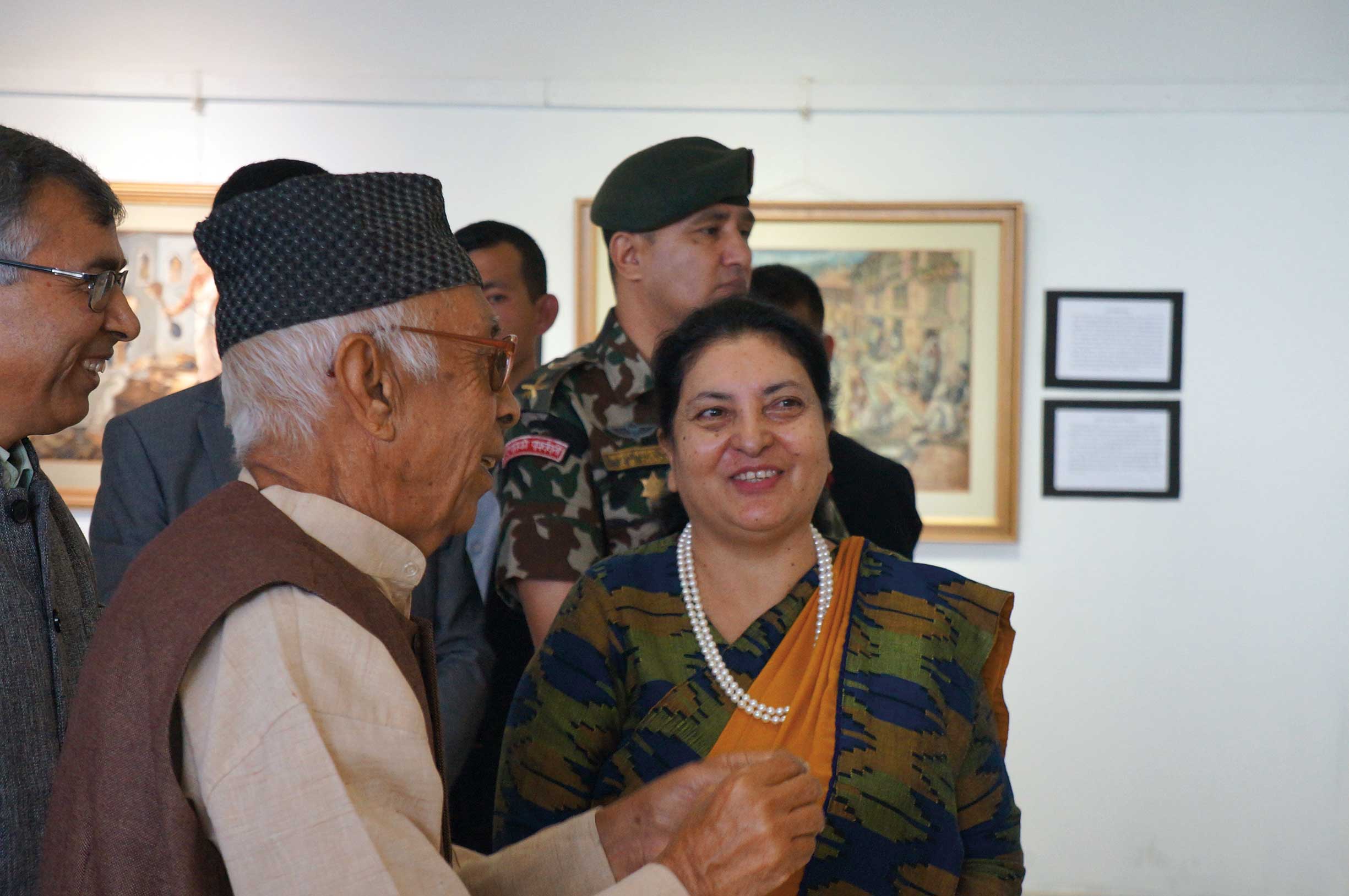It seems as though the characters in Prawin Adhikari’s debut collection The Vanishing Act have conspired to stay with us. Without much sound, they burrow deep into the folds of our memories and appear in our daily lives-- nudging us as we doze off on a bus, warming up a cup of tea that has long grown cold hairs. A distinct thread of guilt, death, politics, heartache, forgiveness, generational chasms, legacy, Kollywood-Bollywood pop-culture, and love tie these nine stories into a whole that frequently feels like a full novel told in three settings: beloved Abu Khaireni, Kathmandu and California. Adhikari’s stories explore essential questions of self-worth as reflected in a loved one’s gestures; of familiarity in relationships that are measured not by blood but humanity; and especially of an inherent fear as to who will be remembered, who will do the remembering, what-how-why-when.
 No quintessential Nepali story is complete without a backdrop of constant change. In Fortune, we age with Lok Nath, who witnesses the changing landscape of his village and fears a loss of history when encountering the inability of young village boys to remember the names of their own grandfathers. Sometimes, the change is more localized—say, the tectonic shifts of a face post cosmetic surgery. These changes, of course, come with consequences: a woman loses her husband at a mining-mishap, a man builds himself a home of four sturdy walls to mark his existence, doppelgangers surface, characters revisit and reconcile with old ghosts, and many are forgiven.
No quintessential Nepali story is complete without a backdrop of constant change. In Fortune, we age with Lok Nath, who witnesses the changing landscape of his village and fears a loss of history when encountering the inability of young village boys to remember the names of their own grandfathers. Sometimes, the change is more localized—say, the tectonic shifts of a face post cosmetic surgery. These changes, of course, come with consequences: a woman loses her husband at a mining-mishap, a man builds himself a home of four sturdy walls to mark his existence, doppelgangers surface, characters revisit and reconcile with old ghosts, and many are forgiven.
However, amidst all the moving and changing, Adhikari provides us with a powerful constant of boyhood tales. Bookended with two stories that both explore the consequences of careless words and actions from young protagonists, the undercurrent of boyhood tales in the collection, quite frankly, is the most remarkable storytelling and writing I have seen from a contemporary Nepali writer writing in English. In Mayapuri, we laugh with the ten-year-old who reasons kicking in his sleep as part of his football-playing skills, and yet we understand his raw desire for a married woman, whom he eventually “sleeps” with. Flawed, gnawed or glorified, we’ve each experienced childhood and can relate to Adhikari’s boyhood stories that rest precariously between innocence and danger.
The short story is a tricky form. Much like a poem, words have to be weighted, but like a novel, the worlds and characters have to live long lives. Adhikari is our local Alice Munro, in that he stretches the possibilities of short stories in length and depth as they dive into the core of the human condition. However, sometimes the very length weakens the precision of his stories. It mustn’t go unnoticed that Adhikari’s strength as a storyteller, his ability to write memorable characters, and create a treasure-hunt of striking imagery and humor is what allows readers to overlook areas of the prose where time is often confusing, translations sit awkwardly, and small but significant sections of dialogue and prose function solely as information.
I was once told that a story occurs at an axis where the lives and paths of characters meet. After the story, or past that precise point, the characters continue on their separate journeys of life in a believable universe. A good story has the ability to let the readers imagine the lives of characters long after that point. As I turn over page 226 of The Vanishing Act, the characters still linger-- some with their “chocolate ice cream smiles,” others who continue to dive “in the depths of the river to collect human bones.” They laugh at me, they anger me, they sadden me, and sometimes they even break my heart.











